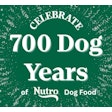In a new paper published in the Journal of Animal Science, researchers analyzed the value of nutrients from raw meat diets for cats and exotic felids.
The researchers from the University of Illinois at Urbana-Champaign and Omaha, Nebraska, USA’s Henry Doorly Zoo and Aquarium analyzed the value of nutrients from bison, cattle, horses and elk meats to test how the different diets affected cats. Researchers collected blood serum and fecal samples from domestic cats and captive African wildcats, jaguars and Malayan tigers, in addition to using cecetomized roosters to analyze amino acid digestibility in the different diets.
Findings indicated that although raw meat diets met many of the nutrient requirements for cats, none of the diets contained the recommended levels of linoleic acid, and horse meat did not provide recommended levels of arachidonic acid for kittens, as well as gestating and lactating females.
"With the closing of horse abattoirs in 2007, the availability of quality grade horsemeat in the United States has decreased, increasing the need for research on the digestibility and composition of possible alternatives," according to researchers.
Kelly Swanson, associate professor of animal science at the University of Illinois and co-author of the study, said the researchers are "a bit wary" of pet owners feeding homemade raw diets because of the risk of exposing cats to increased pathogens and nutrient imbalances. Additionally, a high-protein diet can chance the types of microbes in the cat’s gut. This, researchers say, can lead to more “odiferous” feces, depending on the digestibility of the protein source.


















